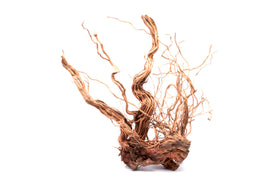
Aquario Neo Solid No CO2 Tab - Aquatic Plant Root Fertilizer
Created from high-quality materials with advanced technology, the NEO Plants Tab collection by Aquario offers aid and support in ensuring aquarium plants are thriving! Aquarists can choose specialized tabs based on their specific aquatic plant's nutritional needs. Designed to be a slow-release, Aquario's Plants Tabs allow aquarium plants to absorb nutrients effectively while preventing the appearance of unwanted algae.
Aquario Neo SOLID is an aquatic plant fertilizer that is intended to be used in planted aquariums that do not utilize a CO2 system. When used as directed, Aquario Neo Solid No CO2 is effective for aquarium plants that absorb essential nutrients such as nitrogen, potassium and phosphate through their root systems. Ideal for use with aquarium substrates that contain little to no nutrients.
Read below to see which plant tab is best for your setup.
Each bottle comes with over 100 tabs.
| Plants Tab Type | Ingredients | Effect |
|
| TAB 1 | Nitrogen, Phosphoric Acid, Potassium (chemical fertilizer) | Comprehensive fertilizer that aids in promoting quick growth |
When there is a shortage of a specific nutrient. |
| K | Potassium (chemical fertilizer) | Promotes photosynthesis |
Holes in old leaves |
| Fe | Iron (chemical fertilizer) | Color enhancement |
Chlorosis of new leaves |
| St. Long | Organic Fertilizer | Long-lasting, slow-release fertilizer |
Heavy root feeders or rescaping |
| Solid No CO2 | Activates the bottom and maximizes nutrient absorption. |
To support healthy plant growth when the tank does not have a CO2 supply. |
WHICH TAB SHOULD I USE?
- Aquario Neo Plants Tab TAB 1 should be used as a general root tab and supplemented with K or FE depending on specific needs.
- If planted aquarium has been running for more than one year, St. Long should be used and supplemented as needed.
- Root tabs last approximately 2 months depending on aquarium size, aquarium plants used and setup.
Phosphate Deficiency:
- Red leaves turning green or old leaves melting away.
- Tab 1
Potassium Deficiency:
- Old leaves have holes
- Tab 1, Tab K
Iron Deficiency:
- New leaves have a lack of color or turn white or red plants are not colored well.
- Tab Fe
Calcium Deficiency:
- New growth is abnormal.
- Tab St. Long







